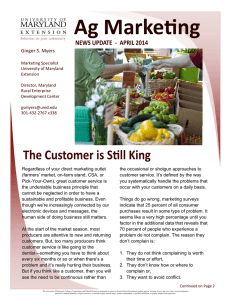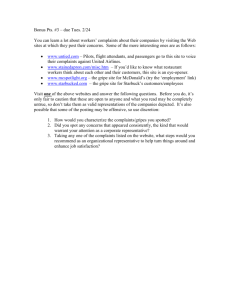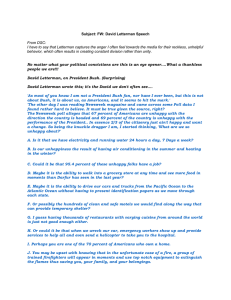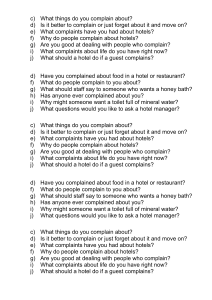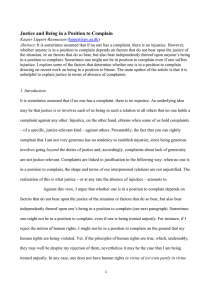Smart Marketing Means Keeping Customers Happy
advertisement
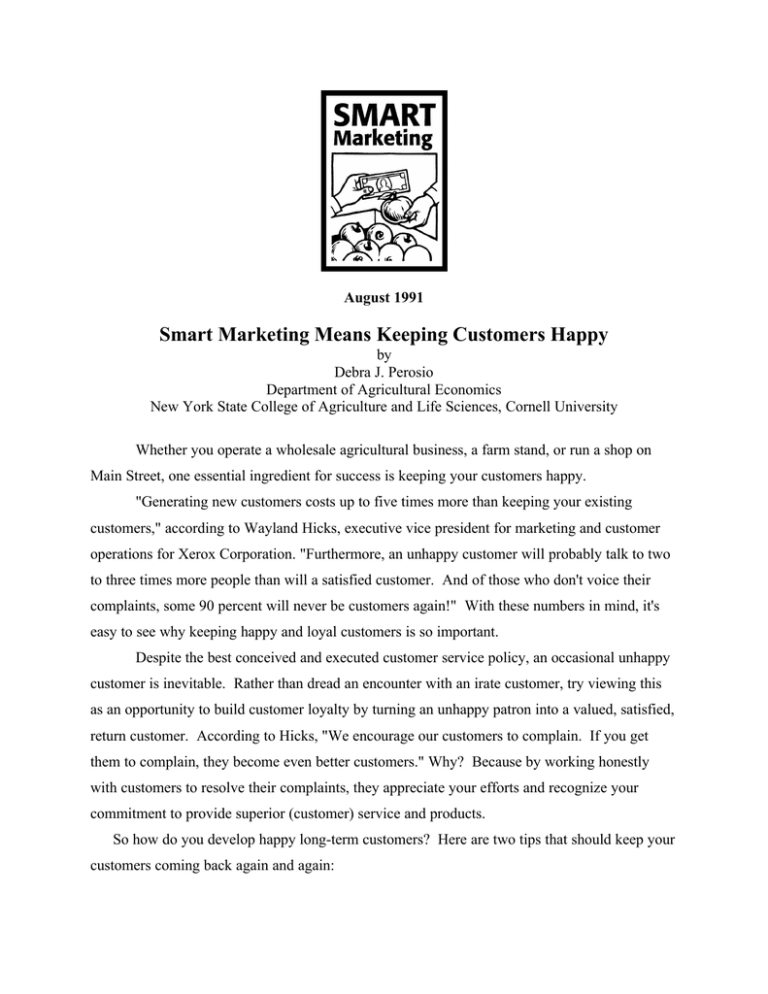
August 1991 Smart Marketing Means Keeping Customers Happy by Debra J. Perosio Department of Agricultural Economics New York State College of Agriculture and Life Sciences, Cornell University Whether you operate a wholesale agricultural business, a farm stand, or run a shop on Main Street, one essential ingredient for success is keeping your customers happy. "Generating new customers costs up to five times more than keeping your existing customers," according to Wayland Hicks, executive vice president for marketing and customer operations for Xerox Corporation. "Furthermore, an unhappy customer will probably talk to two to three times more people than will a satisfied customer. And of those who don't voice their complaints, some 90 percent will never be customers again!" With these numbers in mind, it's easy to see why keeping happy and loyal customers is so important. Despite the best conceived and executed customer service policy, an occasional unhappy customer is inevitable. Rather than dread an encounter with an irate customer, try viewing this as an opportunity to build customer loyalty by turning an unhappy patron into a valued, satisfied, return customer. According to Hicks, "We encourage our customers to complain. If you get them to complain, they become even better customers." Why? Because by working honestly with customers to resolve their complaints, they appreciate your efforts and recognize your commitment to provide superior (customer) service and products. So how do you develop happy long-term customers? Here are two tips that should keep your customers coming back again and again: 1) Personalize your business. Make your business user-friendly. Let people (customers, employees, and management) rather than rules take control of the business. Do everything you can to make your customers feel good before, during, and after they patronize your business. If possible, get to know them by name and learn something about them. 2) Fix customer complaints better than anyone else. How? By keeping in mind these eight simple ideas: • Respond immediately to the complaint. • Listen to the customer. • Show empathy to the customer. • Don't challenge the customer. • Don't try to win the argument. • Keep the customer informed of your progress if the situation can not be resolved immediately. • Mutually agree on a solution. • Follow up. Do what you said you would do. Regardless of what type of business you are in, whether it is big or small, at home, on the farm, or on Main Street, striving for superior customer service should be a common denominator of all businesses. After all, who can afford not to?
